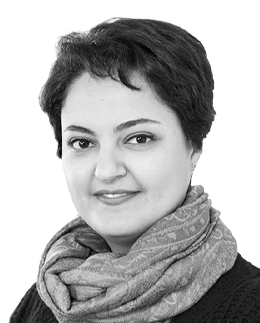Dr. David Broneske did his Bachelor and Master in Computer Science at the Otto-von-Guericke University Magdeburg, where he received his Ph.D. in 2019 and afterward started his Habilitation. From 2019 to 2020, he was the substitutional head of the chair of Database and Informationssystems at Hochschule Anhalt in Köthen. Since March 2021, he is the acting head of Department 4 "Infrastructures and Methods" of the German Centre for Higher Education Research and Science Studies (DZHW).

Dr. David Broneske
Research Area Research Infrastructure and Methods
Acting Head of Department
- +49 511 450670-454
- Google Scholar
- Orcid
Academic research fields
Research Data Management for Learning Analytics Data, Main-Memory Database Systems on Modern Hardware, Interactive Data Exploration and Visualization, Artificial Intelligence for Data Cleaning and Analysis
List of projects
List of publications
Context-aware search space adaptation of hyperparameters and architectures for AutoML in text classification.Safikhani, P., & Broneske, D. (2025).Context-aware search space adaptation of hyperparameters and architectures for AutoML in text classification. ACL Anthology, 1018-1027. Abstract
While Automated Machine Learning (AutoML) systems have shown strong performance on structured data, their application to natural language processing (NLP) tasks remains limited by static, task-agnostic search spaces. In this work, we propose a context-aware extension of AutoPyTorch that dynamically adapts both the hyperparameter search space and neural architecture configuration based on corpus-level meta-features. Our approach extracts interpretable textual statistics—such as average sequence length, vocabulary richness, and class imbalance—to guide the configuration of key hyperparameters. We also introduce two adaptive neural backbones, whose structures are shaped by these meta-features to improve model expressiveness and generalization. |
Improving the performance of evolutionary-based complex detection models using gene ontology-based mutation operator in potein-protein interaction networks.Abbas, M., Broneske, D., & Saake, G. (2025).Improving the performance of evolutionary-based complex detection models using gene ontology-based mutation operator in potein-protein interaction networks. In Arai, K. (Hrsg.), Intelligent Systems and Applications. Proceedings of the 2025 Intelligent Systems Conference (IntelliSys) (S. 512-528). Cham: Springer. https://doi.org/10.1007/978-3-031-99958-1_32 |
Static and dynamic contextual embedding for AutoML in text classification tasks.Safikhani, P., & Broneske, D. (2025).Static and dynamic contextual embedding for AutoML in text classification tasks. In IEEE Institute of Electrical and Electronic Engineers (Hrsg.), 2025 7th International Conference on Natural Language Processing (ICNLP) (S. 292-301). Jacksonville, Florida, USA: IEEE Xplore. https://doi.org/10.1109/ICNLP65360.2025.11108687 |
Gotta catch 'Em All... Or Not?: How LLMs bypass traditional checks & mimic human response behavior in web surveys.Shahania, S., Spiliopoulou, M., & Broneske, D. (2025).Gotta catch 'Em All... Or Not?: How LLMs bypass traditional checks & mimic human response behavior in web surveys. In Association for Computing Machinery (Hrsg.), CI '25: Proceedings of the ACM Collective Intelligence Conference (S. 113-128). New York: ACM. https://doi.org/10.1145/3715928.3737491 |
SBC-SHAP: Increasing the accessibility and interpretability of machine learning algorithms for sepsis prediction.Walke, D., Steinbach, D., Kaiser, T., Schönhuth, A., Saake, G., Broneske, D., & Heyer, R. (2025).SBC-SHAP: Increasing the accessibility and interpretability of machine learning algorithms for sepsis prediction. The Journal of Applied Laboratory Medicine. https://doi.org/10.1093/jalm/jfaf091 |
Edges are all you need: Potential of medical time series analysis on complete blood count data with graph neural networks.Walke, D., Steinbach, D., Gibb, S., Kaiser, T., Saake, G., ... & Heyer, R. (2025).Edges are all you need: Potential of medical time series analysis on complete blood count data with graph neural networks. PLOS One. https://doi.org/10.1371/journal.pone.0327636 |
SurveyBot: A new era of web survey pretesting.Shahania, S., Spiliopoulou, M., & Broneske, D. (2025).SurveyBot: A new era of web survey pretesting. In I. Maglogiannis, L. Iliadis, A. Andreou, & A. Papaleonidas (Hrsg.), Artificial Intelligence Applications and Innovations. AIAI 2025. IFIP Advances in Information and Communication Technology. Cham: Springer. https://doi.org/10.1007/978-3-031-96235-6_29 |
Towards automatic bias analysis in multimedia journalism.Hinrichs, R., Steffen, H., Avetisyan, H., Broneske, D., & Ostermann, J. (2025).Towards automatic bias analysis in multimedia journalism. Discover Artificial Intelligence, 5(1), 1-28. https://doi.org/10.1007/s44163-025-00362-1 |
Embracing NVM: Optimizing $B^𝜖$-tree structures and data compression in storage engines.Karim, S., Wünsche, F., Broneske, D., Kuhn, M., & Saake, G. (2025).Embracing NVM: Optimizing $B^𝜖$-tree structures and data compression in storage engines. In Binnig, C. et al. (Hrsg.), Datenbanksysteme für Business, Technologie und Web - Workshopband (BTW 2025) (S. 329-333). Bonn: Gesellschaft für Informatik. https://doi.org/10.18420/BTW2025-137 |
A multi-objective evolutionary algorithm for detecting protein complexes in PPI networks using gene ontology.Abbas, M. N., Broneske, D., & Saake, G. (2025).A multi-objective evolutionary algorithm for detecting protein complexes in PPI networks using gene ontology. Scientific Reports, 15. https://doi.org/10.1038/s41598-025-01667-y |
AutoML meets hugging face: Domain-aware pretrained model selection for text classification.Safikhani, P., & Broneske, D. (2025).AutoML meets hugging face: Domain-aware pretrained model selection for text classification. In A. Ebrahimi, S. Haider, E. Liu, M. L. Pacheco, & S. Wein (Hrsg.), Proceedings of the 2025 Conference of the Nations of the Americas Chapter of the Association for Computational Linguistics: Human Language Technologies (Volume 4: Student Research Workshop). Albuquerque, USA: Association for Computational Linguistics. Abstract
The effectiveness of embedding methods is crucial for optimizing text classification performance in Automated Machine Learning (AutoML). However, selecting the most suitable pre-trained model for a given task remains challenging. This study introduces the Corpus-Driven Domain Mapping (CDDM) pipeline, which utilizes a domain-annotated corpus of pre-fine-tuned models from the Hugging Face Model Hub to improve model selection. Integrating these models into AutoML systems significantly boosts classification performance across multiple datasets compared to baseline methods. Despite some domain recognition inaccuracies, results demonstrate CDDM’s potential to enhance model selection, streamline AutoML workflows, and reduce computational costs. |
NVM in data storage: A post-optane future.Karim, S., Wünsche, J., Kuhn, M., Saake, G., & Broneske, D. (2025).NVM in data storage: A post-optane future. ACM Digital Library, ACM Transaction on Storage21(3). https://doi.org/10.1145/3731454 (Abgerufen am: 01.07.2025). https://doi.org/10.1145/3731454 |
VerbCraft: Morphologically-aware Armenian text generation using LLMs in low-resource settings.Avetisyan, H., & Broneske, D. (2025).VerbCraft: Morphologically-aware Armenian text generation using LLMs in low-resource settings. In ¦. A. Holdt, N. Ilinykh, B. Scalvini, M. Bruton, I. N. Debess, & C. M. Tudor (Hrsg.), Proceedings of the Third Workshop on Resources and Representations for Under-Resourced Languages and Domains (RESOURCEFUL-2025) (S. 111-119). Tallinn: University of Tartu Library, Estonia. |
Tell me more! Using multiple features for binary text classification with a zero-shot model.Broneske, D., Italiya, N., & Mierisch, F. (2025).Tell me more! Using multiple features for binary text classification with a zero-shot model. In IEEE Institute of Electrical and Electronic Engineers (Hrsg.), 2024 International Conference on Machine Learning and Applications (ICMLA) (S. 1613-1620). Jacksonville, Florida, USA: IEEE Xplore. https://doi.org/10.1109/ICMLA61862.2024.00249 |
ADAMANT: Hardware-accelerated query processing made easy.Broneske, D., Burtsev, V., Drewes, A., Gurumurthy, B., Pionteck, T., & Saake, G. (2025).ADAMANT: Hardware-accelerated query processing made easy. In K.-U. Sattler, A. Kemper, T. Neumann, & J. Teubner (Hrsg.), Scalable Data Management for Future Hardware (S. 1-38). Cham: Springer. https://doi.org/10.1007/978-3-031-74097-8 |
List of presentations & conferences
Since 03/2021
Acting Head of Department 4 "Infrastructures and Methods" of the German Centre for Higher Education Research and Science Studies (DZHW)
04/2020 - 02/2021
Post-Doc at Otto-von-Guericke University Magdeburg
10/2019 - 03/2020
Substitutional Professor at Hochschule Anhalt - Chair of Database and Information Systems
06/2019 - 09/2019
Post-Doc at Otto-von-Guericke University Magdeburg
08/2013 - 05/2019
PhD Student at Otto-von-Guericke University Magdeburg
2008 - 2013
Bachelor and Master Studies in "Computer Science", Otto-von-Guericke University Magdeburg
















